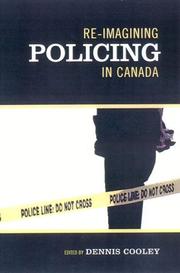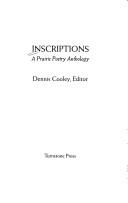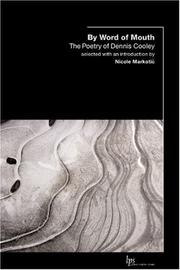| Listing 1 - 10 of 14 | << page >> |
Sort by
|

ISBN: 1442627336 0802085032 0802036813 9781442627338 9780802036810 9780802085030 1442658053 Year: 2005 Publisher: Toronto
Abstract | Keywords | Export | Availability | Bookmark
 Loading...
Loading...Choose an application
- Reference Manager
- EndNote
- RefWorks (Direct export to RefWorks)
Policing in Canada is in the process of change: similar to other nations in the western world, many of the policing services that were provided by public forces in the past are being gradually handed over to private security agencies.Complex networks of policing that reflect a mix of public and private security providers are emerging, and this transformation has serious implications for how Canadians interact with one another. For instance, if residents of a gated community or members of a downtown business association pay for their own policing services rather than relying on the public police, whose law is being enforced?With this collection, Dennis Cooley has brought together some of the top minds in criminology and policing to examine the phenomenon of the changing nature of policing in Canada. The essays describe the character and constitution of security in Canada and explore the implications of these changes in terms of larger questions about power, social control, justice, and law. Wide-ranging and topical, Re-imagining Policing in Canada will prove essential reading for policy-makers and scholars alike.
Police --- E-books --- Canada. --- Canada (Province) --- Canadae --- Ceanada --- Chanada --- Chanadey --- Dominio del Canad --- Dominion of Canada --- Jianada --- Kʻaenada --- Kanada --- Ḳanadah --- Kanadaja --- Kanadas --- Ḳanade --- Kanado --- Kanak --- Province of Canada --- Republica de Canad --- Yn Chanadey --- Dominio del Canadá --- Kaineḍā --- Kanakā --- Republica de Canadá
Book
ISBN: 1772120332 9781772120332 9780888648273 0888646453 9780888646453 0888648278 Year: 2014 Publisher: Edmonton, Alberta, Canada
Abstract | Keywords | Export | Availability | Bookmark
 Loading...
Loading...Choose an application
- Reference Manager
- EndNote
- RefWorks (Direct export to RefWorks)
would you believe me when i make consorts of alphabet runaways & stayathomes i have rounded up where they wandered all over the page Dennis Cooley masterfully extends the genre of the abecedary to explore his curiosity of the limitlessness of human communication. With linguistic wit and complexity, his poetry carries the reader through the historical developments of the alphabet. He pries open letters and words to play with both their immediate meaning and the possibilities within the words themselves, creating surprises as he explores spelling, sound, syntax, and pronunciation. After reading Cooley's abecedarium you'll never look at language the same way. Lovers of experimental poetry as well as those interested in linguistic play or the history of language will relish the rapid-fire shifts and musicality of Cooley's newest collection of poetry.
Canadian poetry. --- Canadian poetry (English) --- Canadian literature --- Canadian Literature. --- Poetry.
Book
ISBN: 1772121487 9781772121483 9781772121193 1772121193 Year: 2016 Publisher: Edmonton, Alberta, Canada
Abstract | Keywords | Export | Availability | Bookmark
 Loading...
Loading...Choose an application
- Reference Manager
- EndNote
- RefWorks (Direct export to RefWorks)
Robert Kroetsch, one of Canada's most important writers, was a fierce regionalist with a porous yet resilient sense of "home." Although his criticism and fiction have received extensive attention, his poetry remains underexplored. This exuberantly polyvocal text by dennis cooley - who knew Kroetsch and worked with him for decades - seeks to correct this imbalance. This work offers a dazzling, playful, and intellectually complex conversation that draws together personal recollections, Kroetsch's archival materials, and the international body of Kroetsch scholarship. For literary scholars and anyone who appreciates Canadian literature, The Home Place will represent the standard critical evaluation of Kroetsch's poetry for years to come.

ISBN: 0888011687 Year: 1992 Publisher: Winnipeg : Turnstone,
Abstract | Keywords | Export | Availability | Bookmark
 Loading...
Loading...Choose an application
- Reference Manager
- EndNote
- RefWorks (Direct export to RefWorks)
Book
ISBN: 9789401772648 9401772630 9789401772631 9401772649 Year: 2015 Publisher: Dordrecht : Springer Netherlands : Imprint: Springer,
Abstract | Keywords | Export | Availability | Bookmark
 Loading...
Loading...Choose an application
- Reference Manager
- EndNote
- RefWorks (Direct export to RefWorks)
This book brings together the relevant interdisciplinary and method elements needed to form a conceptual framework that is both pragmatic and rigorous. By using the best, and often the latest, work in thanatology, psychology, neuroscience, sociology, physics, philosophy and ethics, it develops a framework for understanding both what death is – which requires a great deal of time spent developing definitions of the various types of identity-in-the-moment and identity-over-time – and the values involved in death. This pragmatic framework answers questions about why death is a form of loss; why we experience the emotional reactions, feelings and desires that we do; which of these reactions, feelings and desires are justified and which are not; if we can survive death and how; whether our deaths can harm us; and why and how we should prepare for death. Thanks to the pragmatic framework employed, the answers to the various questions are more likely to be accurate and acceptable than those with less rigorous scholarly underpinnings or which deal with utopian worlds. .
Philosophy. --- Ethics. --- Neurosciences. --- Health Psychology. --- Philosophy (General). --- Psychology, clinical. --- Neurosciences --- Morale --- Philosophy --- Philosophy & Religion --- Ethics --- Death --- Moral and ethical aspects. --- Mental philosophy --- Health psychology. --- Humanities --- Neural sciences --- Neurological sciences --- Neuroscience --- Medical sciences --- Nervous system --- Deontology --- Ethics, Primitive --- Ethology --- Moral philosophy --- Morality --- Morals --- Philosophy, Moral --- Science, Moral --- Values --- Health psychology --- Health psychology, Clinical --- Psychology, Clinical health --- Psychology, Health --- Salutogenesis --- Clinical psychology --- Medicine and psychology
Book
ISBN: 9048130204 9400730594 128283939X 9048130220 9048130212 9786612839399 Year: 2009 Publisher: New York : Springer,
Abstract | Keywords | Export | Availability | Bookmark
 Loading...
Loading...Choose an application
- Reference Manager
- EndNote
- RefWorks (Direct export to RefWorks)
Ethical debate often lags far behind the development of new technology. As a result, confusion abounds over what is permissible, what is not, and what we should do about any of it. This uncertainty results in bad policy decisions and unnecessary strife in some communities, as has happened in the case of transgenic or genetically modified organisms. In this book, D.R. Cooley, associate professor of philosophy and ethics at North Dakota State University, shows that a pragmatic solution to this problem is to develop a practical moral code that can be used to evaluate any technological development before it happens. In ensuring this code’s wide-ranging applicability, Cooley has designed it to include moral principles and a hierarchical value theory created from a combination of the best elements of Kant’s and Mill’s ethical theories, applied ethics, including environmental, bioethics, and business ethics, and how people actually think about morality in their everyday lives. In addition, the author examines and offers solutions to a number of problematic views in current technology debates after examining each in much greater detail than is currently available. By taking seriously C.L. Stevenson’s claim that philosophy should be informed by all the sciences, this work’s pragmatic code is designed to solve problems, rather than create or foster them.
Genetics --Moral and ethical aspects. --- Ethics. --- Values. --- Philosophy. --- Philosophy of nature. --- Agriculture. --- Law. --- Public law. --- Law, general. --- Philosophy of Technology. --- Public Law. --- Philosophy of Nature. --- Deontology --- Ethics, Primitive --- Ethology --- Moral philosophy --- Morality --- Morals --- Philosophy, Moral --- Science, Moral --- Philosophy --- Values --- Axiology --- Worth --- Aesthetics --- Knowledge, Theory of --- Metaphysics --- Psychology --- Ethics --- Nature --- Nature, Philosophy of --- Natural theology --- Law --- Mental philosophy --- Humanities --- Farming --- Husbandry --- Industrial arts --- Life sciences --- Food supply --- Land use, Rural --- Acts, Legislative --- Enactments, Legislative --- Laws (Statutes) --- Legislative acts --- Legislative enactments --- Jurisprudence --- Legislation --- Public law .

ISBN: 128090805X 9786610908059 1554581109 1429480351 9781554580071 1554580072 9781429480352 9781280908057 9781554581108 6610908052 1554587409 Year: 2007 Publisher: Waterloo, Ont. Wilfrid Laurier University Press
Abstract | Keywords | Export | Availability | Bookmark
 Loading...
Loading...Choose an application
- Reference Manager
- EndNote
- RefWorks (Direct export to RefWorks)
Dennis Cooley, one of Canada's most prominent poets, says writing becomes political when you play with certain kinds of voices. His poetry has been influenced and inspired by the prairies and other Canadian poets, but he insists on disturbing the formal poetic inheritance he esteems. His engagement with a variety of speaking voices asks that readers question authority and challenge institutional privilege. In By Word of Mouth, a collection from across his career, readers will discover how Cooley returns to the prairie vernacular and speaks to Canadian identity. Poetry, says Cooley, i
Holocaust, Jewish (1939-1945) --- Personal narratives --- Netherlands. --- English poetry. --- Cooley, Dennis,
Digital
ISBN: 9789048130214 9789048130221 9789048130207 9789400730595 Year: 2010 Publisher: Dordrecht Springer Netherlands
Abstract | Keywords | Export | Availability | Bookmark
 Loading...
Loading...Choose an application
- Reference Manager
- EndNote
- RefWorks (Direct export to RefWorks)
Ethical debate often lags far behind the development of new technology. As a result, confusion abounds over what is permissible, what is not, and what we should do about any of it. This uncertainty results in bad policy decisions and unnecessary strife in some communities, as has happened in the case of transgenic or genetically modified organisms. In this book, D.R. Cooley, associate professor of philosophy and ethics at North Dakota State University, shows that a pragmatic solution to this problem is to develop a practical moral code that can be used to evaluate any technological development before it happens. In ensuring this code’s wide-ranging applicability, Cooley has designed it to include moral principles and a hierarchical value theory created from a combination of the best elements of Kant’s and Mill’s ethical theories, applied ethics, including environmental, bioethics, and business ethics, and how people actually think about morality in their everyday lives. In addition, the author examines and offers solutions to a number of problematic views in current technology debates after examining each in much greater detail than is currently available. By taking seriously C.L. Stevenson’s claim that philosophy should be informed by all the sciences, this work’s pragmatic code is designed to solve problems, rather than create or foster them.
Philosophy --- Philosophy of nature --- General ethics --- Private law --- Law --- Engineering sciences. Technology --- Agriculture. Animal husbandry. Hunting. Fishery --- ethiek --- filosofie --- landbouw --- recht --- burgerlijk recht --- ingenieurswetenschappen
Digital
ISBN: 9789401772648 9789401772655 9789401772631 9789402406726 Year: 2015 Publisher: Dordrecht Springer Netherlands
Abstract | Keywords | Export | Availability | Bookmark
 Loading...
Loading...Choose an application
- Reference Manager
- EndNote
- RefWorks (Direct export to RefWorks)
This book brings together the relevant interdisciplinary and method elements needed to form a conceptual framework that is both pragmatic and rigorous. By using the best, and often the latest, work in thanatology, psychology, neuroscience, sociology, physics, philosophy and ethics, it develops a framework for understanding both what death is – which requires a great deal of time spent developing definitions of the various types of identity-in-the-moment and identity-over-time – and the values involved in death. This pragmatic framework answers questions about why death is a form of loss; why we experience the emotional reactions, feelings and desires that we do; which of these reactions, feelings and desires are justified and which are not; if we can survive death and how; whether our deaths can harm us; and why and how we should prepare for death. Thanks to the pragmatic framework employed, the answers to the various questions are more likely to be accurate and acceptable than those with less rigorous scholarly underpinnings or which deal with utopian worlds. .
Psychology --- General ethics --- Neuropathology --- medische psychologie --- neurologie --- ethiek
Book
ISBN: 1317083520 1280677783 9786613654717 1409435830 9781409456551 1409456552 9781409435839 9781409435822 1409435822 9781315599601 9781317083511 9781317083528 9781138115965 1317083539 1315599600 Year: 2017 Publisher: London ; New York : Routledge,
Abstract | Keywords | Export | Availability | Bookmark
 Loading...
Loading...Choose an application
- Reference Manager
- EndNote
- RefWorks (Direct export to RefWorks)
Passing/Out adopts an inter-generational, inter-disciplinary, and inter-subjective approach to the closeting and revelation of sexual identity, exploring questions of embodiment, ethics and identity in relation to 'passing' or being 'out'. Presenting the latest theoretical and empirical work from scholars working across a range of disciplines including sociology, cultural and media studies, philosophy, gender studies, literary studies and history, this book discusses the nature and history of sexual identity and the manner in which identity functions within social relationships. In recognition of the transformative impact of queer theory upon the study of sexuality and identity, Passing/Out constructs a dialogue between the work of scholars whose intellectual careers began prior to the advent of queer theory and those whose work has been more immediately and directly shaped by this approach, with a view to breaking new ground in the field of identity. Shedding light on the meaning of 'passing' and 'outing' in relation to identity, this volume will be of interest to social scientists and scholars of the humanities working on questions of sexuality, identity, embodiment and ethics.
Outing (Sexual orientation) --- Passing (Identity) --- Gays --- Transsexuals --- Transexuals --- Transsexual people --- Transsexualism --- Transgender people --- Gay people --- Gay persons --- Homosexuals --- Persons --- Identity (Psychology) --- Family relationships. --- Patients --- Identity
| Listing 1 - 10 of 14 | << page >> |
Sort by
|

 Search
Search Feedback
Feedback About UniCat
About UniCat  Help
Help News
News